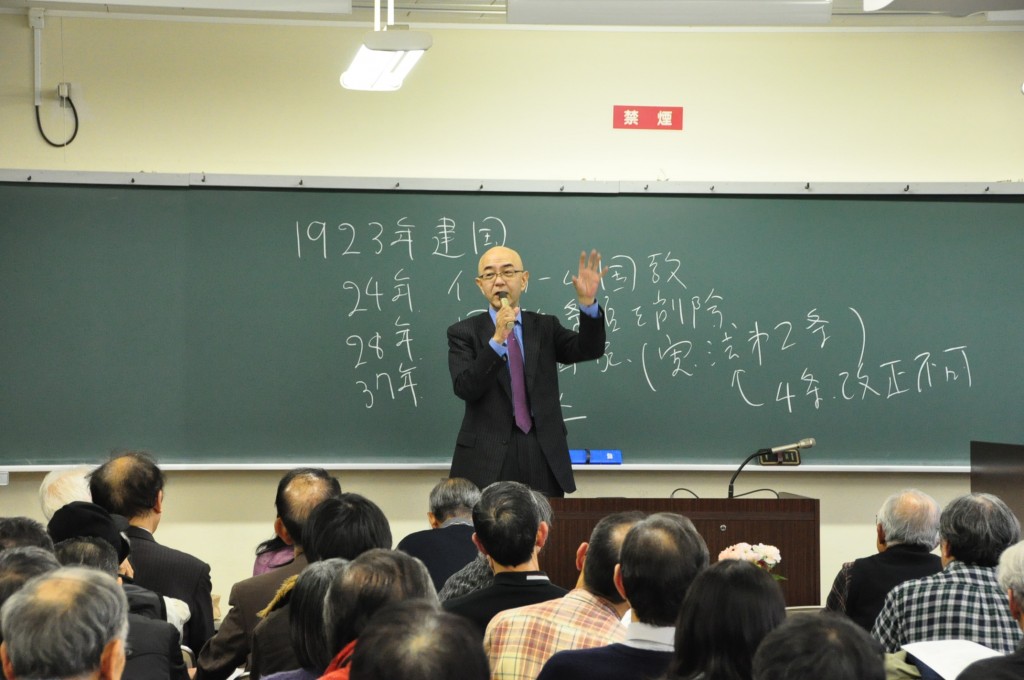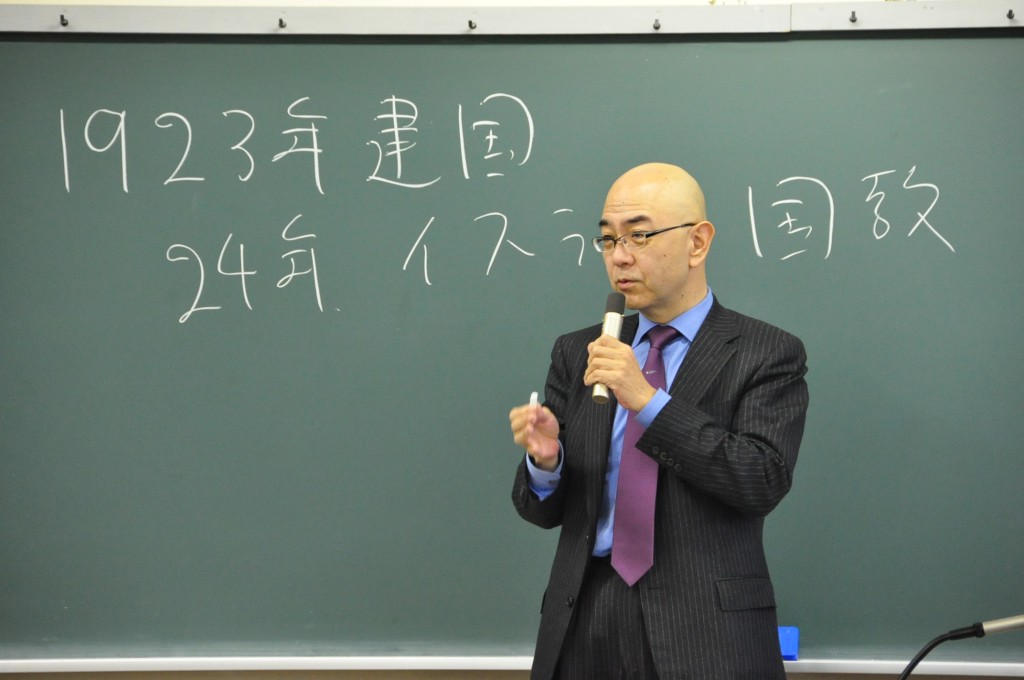Center for Interdisciplinary Study of Monotheistic Religions(CISMOR)Doshisha University
> Public Lectures > Coexistence of Religions in Turkey: It’s Problems and ProspectsPublic Lectures
Public Lecture / Documentary Film Screening by Project 2
Coexistence of Religions in Turkey: It’s Problems and Prospects
| Date: |
2010/03/06 14:00 - 16:00 |
|---|---|
| Place: | Room K25, Kofu-kan 2F, Imadegawa Campus, Doshisha University |
| Lecture: | Masanori NAITO Professor, Hitotsubashi University |
| Summary: | |
|
Unlike conventional lectures, this lecture was centered on the showing of a documentary film, which compiled interviews conducted in Turkey in December 2008 by Professor Masanori Naito and students of Hitotsubashi University. Through interviews with religious leaders, journalists, and general citizens, this film aims to shed light on the secularism in today’s Turkey in order to explore how different religions coexist in Turkey and to reveal the positive and negative sides of Turkish society. Described as the crossroads of civilization in ancient times, Turkey has maintained its identity as a Muslim nation since the age of the Ottoman Empire, with more than 90% of the population being Muslims. At the same time, however, Turkey is the place where the term “Christ” was coined and Paul the Apostle was born, and has long been home to Jews and Christians as well. In this light, the principle of “secularism” advocated by Mustafa Kemal Atatürk, the first president of the Republic of Turkey, can be considered as one of the factors that contribute to inter-religious coexistence in today’s Turkey. In the film, a Catholic priest in Antakya says that Catholics and Muslims have long respected each other’s faith and shared the land as good neighbors, adding that the Catholic Church celebrates the Islamic Festival of Sacrifice, while some Muslims attend Easter Mass. In Istanbul, a chief rabbi remarks that though Jewish believers in Turkey fell into a minority position in Turkish society with the decline of the Ottoman Empire, they have been guaranteed freedom of religion thanks to the principle of secularism. Similarly, a priest from the Armenian Orthodox Church says that they are allowed to have their own churches, schools, and newspaper in Turkey, which makes it easier for them to survive as a religious group. On the other hand, some interviewees point out the problematic aspects of secularism. The Patriarch of Constantinople, for example, points to the fact that, in the wake of the increasing diplomatic tensions between Turkey and Greece, the Orthodox Church is no longer allowed to train their theologians. He adds that this can be in violation of the freedom of religion that should be guaranteed under the principle of secularism. Harsh criticism is also directed at Turkey’s ruling party, AKP, for their biased policies in favor of Sunni Muslims, such as allocating national budgets to cover the management cost of mosques and paying government salaries to Sunni priests but not other priests. Such an attitude by the government is attacked by non-Muslims and non-Sunni Muslims, including leaders of Alevi Muslims, who call this situation the “hollowing out of secularism” and who demand that the government cease such unfair policies. Some citizens argue that the presence of the “religion” box on the Turkish national identification card is not compatible with the government’s principle of secularism. Generally, Turkish people speak favorably of the principle of secularism. This documentary film, however, reveals the abovementioned problems through interviews and provides us with interesting insight that helps us explore the issue of inter-religious coexistence. Kenichiro Takao (Graduate Student of School of Theology, Doshisha University) |
|
|
*This lecture is given in Japanese. *Admission Free, No reservation necessary *Inquiry: 075-251-3972 (CISMOR) |
|
|
Program |
|

